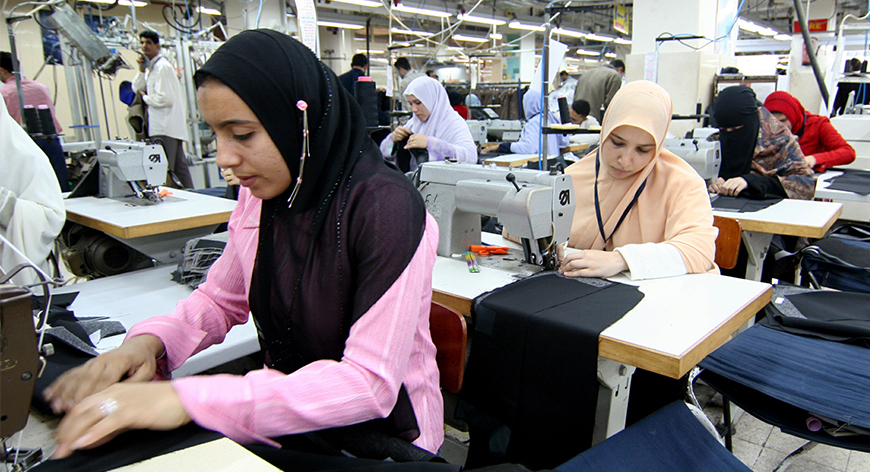In the recently released “Women, Business and the Law 2020” report by the World Bank, which measures the percentage of female participation in the workforce around the world, as well as the socioeconomic and legal situations that are determinant to female employment, it was revealed that only 45% of Egyptian women actively participate in the workforce. Not quite a shocking surprise; however, the figure sheds light on the long journey ahead for gender equality when it comes to employment in Egypt.
In Egypt, the public sector remains the main provider of jobs for women, according to a new research paper published by the American University in Cairo’s (AUC) School of Business, Department of Economics. The paper, entitled “Gender Diversity, Productivity, and Wages in Egyptian Firms,” explores how productivity in different Egyptian industries is affected by the gender makeup of its workforce.
Despite the public sector’s pivotal role in decreasing the gender employment gap, it is not an ideal alternative to private-sector-led effort in the same regard. In fact, it could do more harm than good.
“In Egypt, where the public sector is indeed the main provider of jobs for women, it would be a counterproductive move [to increase employment of women in the public sector] as it would negatively affect the nature of women’s insertion in the labor market,” the paper explains.
In other words, when women are given certain quotas by state institutions, or employed solely based on filling up that quota in the public sector, that leads to hurting their overall employability in the market as they are shielded from having to acquire the skills needed to succeed in private-sector industries.
It is not only that factor holding back women penetration of the market, but also other factors that pertain to women’s demanding role within their households.
“The labor law […] in Egypt does require costly, special treatment for women workers, notably paid maternity leave,” the paper explains. “Second, women workers tend to present other kinds of costs, not legally prescribed, but to do with their social role as wives and mothers.”
Further elaborating, the paper carries on: “Employers may believe that they are justified in not recruiting women in greater numbers because they are less productive workers than men, either because they are less dedicated to their work as a consequence of their social obligations or because they are less experienced and/or skilled and therefore less effective at their tasks.”
Is it the same mindset across different industries?
Contrary to common belief, Egypt’s knowledge-intensive and service sector industries tend to benefit most from gender diversity, reflecting in higher productivity and wages.
“Greater shares of women’s employment and greater gender diversity have a positive association with productivity and wages in the knowledge-intensive services sectors,” the paper states.
Women’s success in such industries is most probably attributed to the skillset women often acquire as part of their social conditioning as females.
“Women outperform men in competencies including coaching and mentoring, influencing, inspirational leadership, conflict management, organizational awareness, adaptability, teamwork and achievement orientation.”
When it comes to manufacturing industries, however, the researchers have found that gender diversity does in fact reduce productivity and wages across the board.
“In manufacturing, women constitute more than 40% of the workforce in only one industry (wearing apparel) and more than 20% in only two (computer, electronic and optical products and pharmaceuticals products and preparations), with negligible shares in many other activities.”
“This finding is consistent with the notion that higher gender diversity increases heterogeneity of beliefs and values, and thus may be linked to greater critical thinking required in knowledge-based industries. Our second finding is that there is a negative or no association with productivity and wages among less knowledge-intensive service and both high- and low-tech manufacturing firms,” the research paper concludes. ???? ?? ????? ??????









